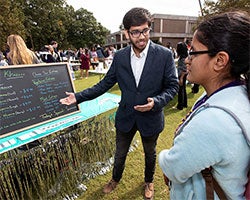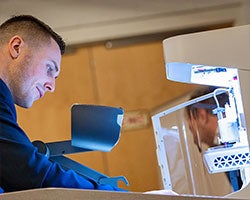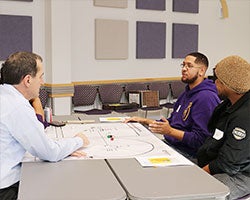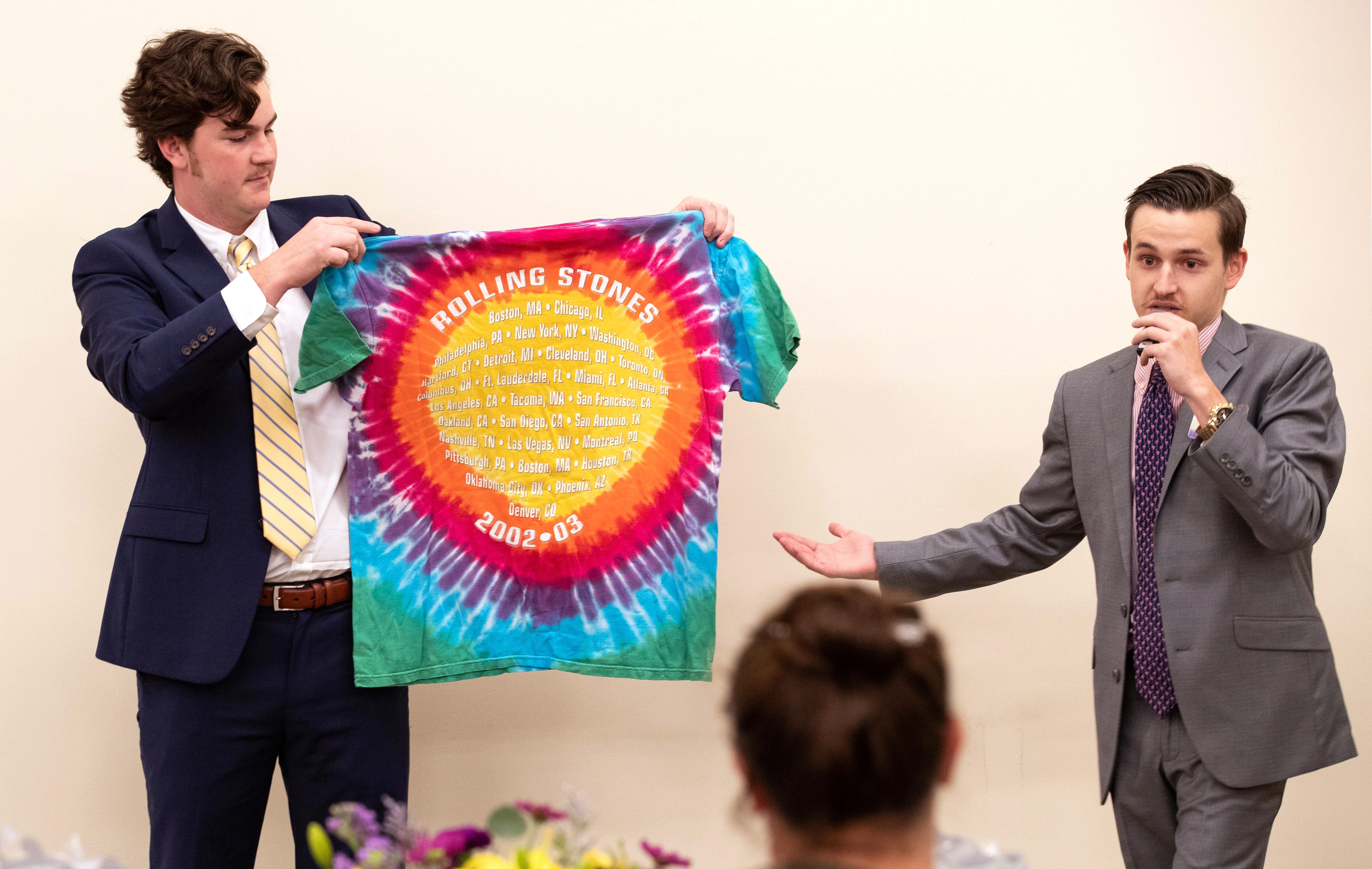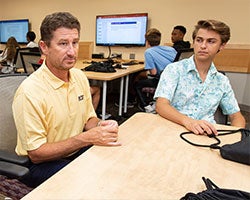Student Identification
Student entrepreneurs for RISE29 are recruited through multiple pipelines including the identification of incoming ECU students, Golden LEAF Scholars, the ECU Honors College, the Horizon Living and Learning Community, the Pirate Entrepreneurship Challenge competition, ECU entrepreneurship courses, and internship programs across campus and throughout the RISE29 communities. Approximately 200-250 students will participate in programs associated with RISE29 annually, with about half that number eventually joining microenterprise teams.
Student and Community Opportunities
Students identified by RISE29 will enter the program by one of three paths: a new business idea, a technology innovation, or a desire to help an existing regional business. The process begins with presentations made to ECU students by representatives from local governments and nonprofits, economic development corporations, and leaders of existing businesses. These pitches will acclimate students to the culture and values of the eastern rural communities as well as outline physical spaces, incentive, and workforce assets.
Teams Formed
Student teams are formed using data analytics and visualization, in partnership with
Protopia – an advanced matchmaking software that connects RISE29 entrepreneurs, mentors and community partners with regional needs. ECU is implementing a mentoring platform with the ability to connect students, communities and mentors. The virtual matchmaking platform provides easy access to mentors within the region and beyond, while allowing communities to share opportunities for student consideration. This system ensures we match student entrepreneurs with the most appropriate resources, mentors and community needs.
Research and Development
ECU and its partners provide a number of research and development resources for RISE29 student teams. These resources range from
ECU’s Miller School of Entrepreneurship,
Innovation Living Learning Community, and financial support. ECU also offers its investments in new laboratories and innovation and prototyping facilities, including its
Van and Jennifer Isley Innovation Hub. Industry and community partners provide expertise alongside regional assets and infrastructure including human capital, facilities, funding and existing programming. Learn more about the variety of
resources utilized for RISE29 success.
Business Model
As part of the pre-launch process, student teams will develop a business model for their microenterprise. Whether a team intends to launch a new microbusiness in eastern North Carolina, or plan to assist an existing business with a continuity plan, their pitches will be based on research data collected and analyzed by the teams and their mentors. Teams actively engage with community members, business owners, ECU faculty, community mentors, and other professionals throughout the process. Some entrepreneurs will come to the program with an advanced plan for a new microenterprise. For these students, a fast track – an enhanced, accelerated, or specialized pathway – will be created to mature the idea to a viable business
more quickly.
Team Pitch to Community
After developing their business model, student teams will meet with community leaders in their respective regions and pitch their ideas. Plan pitches can define existing needs and market trends, while also identifying future market opportunities for new businesses as well as their peripheral, value-chain business opportunities. Team plans may be accepted, returned with revisions, or rejected based on feedback from community leaders. Teams that successfully pitch their ideas will move on to the next phase of the program.
Launch Microenterprises/Enact Continuity Plan
After receiving feedback and approval from community leaders, RISE29 student teams branch into two directions. Students may launch their microenterprises or enact continuity plans for existing businesses. across the region. Both paths embed student teams in the communities their businesses serve, making them an integral part of the counties they’ve partnered with through the program’s development process. By living in the communities where they work, student teams will have a greater interest in the development and success of eastern North Carolina.
Ongoing Mentoring
As part of RISE29’s commitment to microenterprise success, student teams will continue to receive ongoing mentoring even after completing the program. Effective mentorship is a key element of RISE29 as it is imperative for students to connect with knowledgeable and experienced faculty, community members, and seasoned entrepreneurs. This mentorship may include entrepreneurship symposiums, seminars, and funding acquisition assistance.

